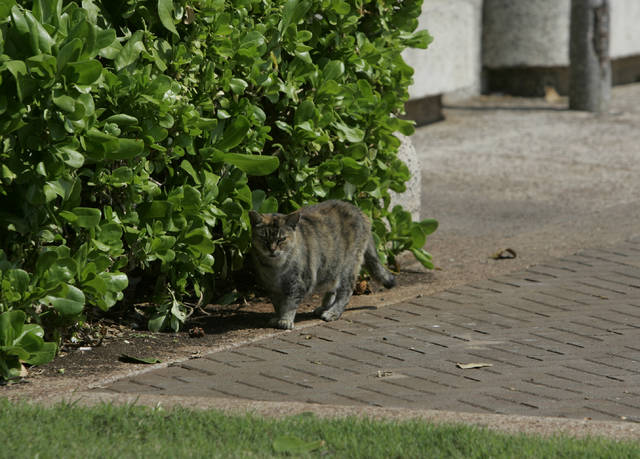Free-roaming cats have gotten a lot of news coverage lately, especially the cats living at state-managed boat harbors. The Hawaiian Humane Society board and staff are committed to do our part in reducing the population of cats on the landscape using humane and compassionate methods.
We recently broke ground on a new high-quality, high-volume spay/neuter clinic. This facility will provide spay/neuter surgeries for companion animals and also will allow us to assist colony caregivers who are working to reduce the population of free-roaming cats.
Since 1993 we have sterilized more than 58,000 free-roaming cats. Our clinic will have an initial capacity to perform up to 8,000 spay/neuter surgeries per year, with the potential to double that number as needed.
We urge the state Department of Land and Natural Resources to reconsider the approach it is taking to the free-roaming cat population at its small boat harbors, particularly at Keehi.
The harbor master rejected offers to manage the cats in place and has banned cat colony caregivers from feeding on site.
The Land Board recently passed an administrative rule that would result in unchecked reproduction and inhumane starvation. This same rule allows for the “destruction” of these cats as well as microchipped pet animals found loose at the harbors. The rules permit the animals to be killed “by any means deemed necessary.” Our job is to prevent animal cruelty and these rules do the exact opposite.
Volunteer community caregivers had stabilized the population of free-roaming cats at Keehi before being banned from the premises. Without their oversight, newly abandoned animals are not being removed, breeding has resumed and feeding is unmanaged, creating the exact nuisance issues that the rules were meant to address.
Ours and many other organizations repeatedly have offered what seems a logical response, to restore an authorized Trap Neuter Return Manage (TNRM) program at Keehi and work with volunteers to implement TNRM programs at other harbors with existing free-roaming cat colonies.
The Land Board’s decision lacks compassion and leaves all animals at harbors in harm’s way. We strongly urge the governor to reject these rules, which cannot be implemented without his approval, and instead to instruct the Division of Boating and Ocean Recreation to work with the volunteers to reduce cat overpopulation at the harbors.
Hundreds of community advocates took the time to submit testimony in opposition to these rules. Public sentiment was clear: Non-lethal control of free-roaming cats is both possible and preferable to extermination. These animals, who are on the landscape through no fault of their own, deserve care and compassion.
Stephanie Kendrick is public policy advocate for the Hawaiian Humane Society.

